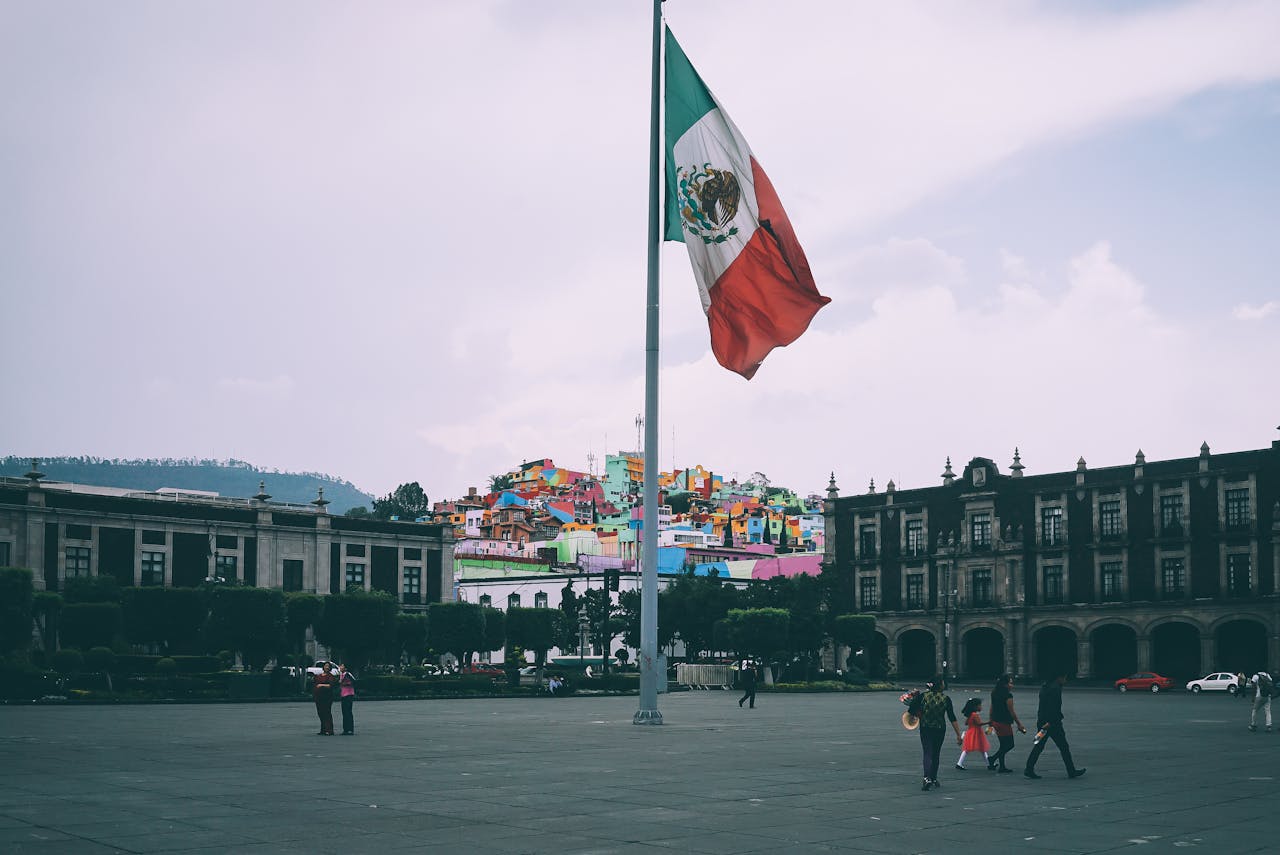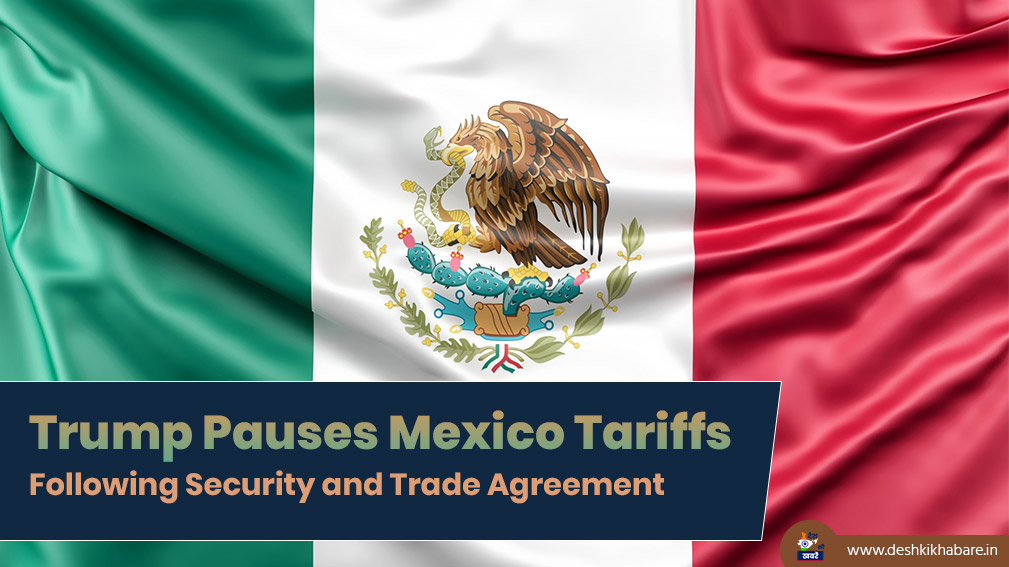Trump and Sheinbaum Reach Border Security Agreement
In a significant move, Trump pauses Mexico tariffs for one month after securing a deal on trade and security with Mexico. This decision was announced after discussions between U.S. President Donald Trump and Mexican President Claudia Sheinbaum on Monday.
Table of Contents
Mexico Enhances Border Security to Address Drug Trafficking
As part of the agreement, Mexico has pledged to strengthen security along its northern border to curb drug trafficking. “We had a constructive discussion with President Trump, ensuring mutual respect for our nations’ sovereignty,” Sheinbaum shared on social media platform X. “Mexico will deploy 10,000 National Guard troops to the northern border to stop fentanyl and other drugs from crossing into the U.S.,” she added.

In return, the U.S. has committed to preventing high-powered weapons from being smuggled into Mexico. “Both countries will initiate immediate discussions on trade and security matters,” Sheinbaum stated, emphasizing that “Trump pauses Mexico tariffs for one month starting today.”
History and Significance of Mexico Tariffs
Tariffs on Mexican goods have been a recurring aspect of U.S.-Mexico trade relations, often used to address economic and security concerns. Over the years, both countries have had disputes related to manufacturing, agriculture, and border security.
One of the most notable incidents occurred in 2019 when then-President Trump threatened escalating tariffs on Mexican imports unless Mexico took measures to curb illegal migration. In response, Mexico deployed its National Guard to assist in border control. Trade policies have also been shaped by agreements such as the North American Free Trade Agreement (NAFTA) and its successor, the United States-Mexico-Canada Agreement (USMCA), both of which have regulated tariffs and trade policies between the nations.
Although trade agreements have minimized many tariffs, their imposition remains a key diplomatic strategy in security and economic discussions. The latest decision to suspend tariffs highlights the complexity and interdependence of trade relations between the U.S. and Mexico.
Economic Effects and Market Responses
The decision to delay tariffs came just hours before they were set to take effect on imports from Mexico, China, and Canada. Taking to Truth Social, Trump stated, “I just spoke with President Claudia Sheinbaum of Mexico. It was a productive conversation in which she agreed to deploy 10,000 Mexican troops at the border to prevent the flow of fentanyl and illegal migrants into the U.S.”
Trump further explained that negotiations would be led by Secretary of State Marco Rubio, Secretary of Treasury Scott Bessent, and Secretary of Commerce Howard Lutnick, along with senior Mexican officials. “We have chosen to pause the planned tariffs for a month while discussions continue,” Trump announced. “I look forward to collaborating with President Sheinbaum to establish a fair and effective agreement.”
The agreement also underscores the U.S. commitment to stopping the illegal flow of firearms into Mexico. However, uncertainty remains regarding the long-term impact of these negotiations, particularly as tariffs on Chinese and Canadian imports are still scheduled to be implemented on Tuesday. Following the announcement, the Mexican peso rebounded, gaining 0.3% in value.
U.S. Vice President JD Vance also weighed in on the situation, posting on X, “For days, critics have questioned whether President Trump’s demands for Mexico to strengthen border security would be effective. This agreement proves them wrong.”
With Trump pausing Mexico tariffs for one month, the upcoming negotiations will be key in determining the future of trade and security cooperation between the two neighboring countries.

